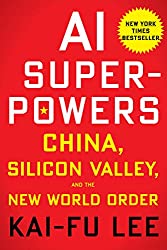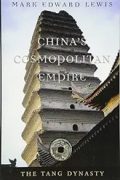
Rating: 7.9/10.
Book Review: AI Superpowers: China, Silicon Valley, and the New World Order by Kai-Fu Lee
Book by Taiwanese CEO and venture capitalist working in China, talking about the differences in AI in China and the US, as well as the future of AI in society. Lee starts the book with the AlphaGo matches, calling it a “Sputnik moment”: the sleeping giant China is awakened as an AI algorithm beats Chinese champion Ke Jie at its own board game. From that moment on, China has poured a substantial amount of investment into AI and has made AI progress a part of its national agenda.
The comparison of China’s tech scene with Silicon Valley is quite interesting. Lee describes China’s environment as a gladiator arena in which thousands of startups battle for market share in a cutthroat arena until one emerges victorious. Unlike American companies that have idealistic visions, Chinese companies care first and foremost about profit, and have no qualms against copying a competitor’s product pixel-for-pixel. Since the legal system is weak, companies can attack each other with tactics that would be illegal in America. The result is a final victor that makes American companies and workers look lazy in comparison.
Additionally, China has a lot of top-down support for AI initiatives. In 2014, WeChat developed into an all-in-one mobile and payment ecosystem, and this was helped by government incentives. In AI research as well, China is engaging with the global research community, and over half of papers at some conferences are from China now.
About 2/3 into the book, Lee changes tone and tells his personal story of how he was diagnosed with cancer, and realized that he was spending too much time on work and had been neglecting his family. While this story is quite cliché, the following chapter reveals why the story is relevant: during his recovery at a monastery, he realizes the value of human connections that AI cannot replace.
Lee considers the problem of AI-induced unemployment and thinks universal basic income is a simplistic solution. Yes, he says, some mechanical jobs will be replaced by AI, but humans should focus on what humans are good at, which is interacting with other humans, and not try to act like a machine. Lee imagines a future where AI does the invisible backend data processing and decision making, while humans are employed as the personable frontend interface.
Overall an interesting read, but a bit one-sided: the author has nothing bad to say about China while criticizing America in many places. I’m skeptical whether the ultra-competitive environment is really a benefit: it seems more like a race to the bottom, incentivizing only the most unethical behavior, and resulting in the long working hours that is the norm in China. His vision of the utopian AI society is only speculative, without much evidence that it is feasible.



